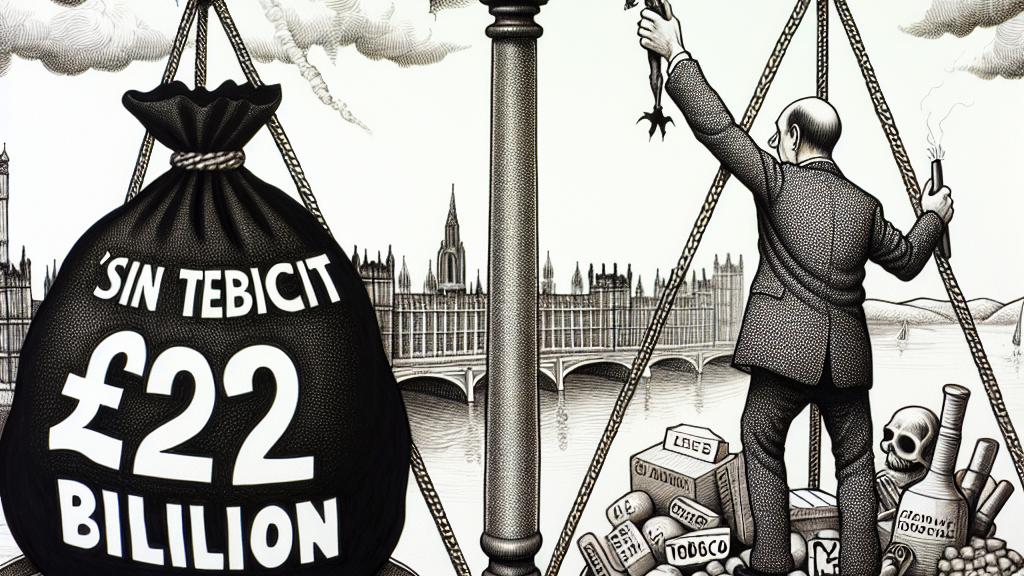The Role of Sin Taxes in Britain's Fiscal Strategy
Overview
- Sin taxes specifically target harmful products, like alcohol and tobacco, aiming to discourage detrimental behaviors while generating revenue.
- In response to a staggering £22 billion budget deficit, the UK government is considering these taxes as a crucial fiscal tool.
- While intended to raise funds, increasing sin taxes raises questions about public health impacts and economic fairness.

Context of Sin Taxes in the UK
As the UK's Labour government gears up to present its first budget, the discussion around sin taxes—levies imposed on products that are harmful to health—is surging. Finance Minister Rachel Reeves finds herself in a challenging position, tasked with addressing a significant budget deficit projected at a staggering £22 billion. In this pursuit, the government is considering raising taxes on products such as alcohol, tobacco, and gambling. Prime Minister Keir Starmer, addressing economic challenges, emphasizes the need to confront what he describes as 'fiscal reality.' By implementing these taxes, the government hopes to replenish the Treasury while simultaneously promoting healthier lifestyle choices among citizens.
Projected Impacts of Increased Sin Taxes
Increasing sin taxes holds the promise of generating remarkable revenue, potentially netting billions of pounds for the government. For instance, proposed levies on the gambling sector could yield between £900 million and £3 billion—a substantial sum that could alleviate some financial strain. However, this strategy may come with unintended consequences. History shows that when taxes on products like tobacco and alcohol rise too high, consumers often turn to black markets. In fact, experts note that in regions where gambling was heavily taxed, there was a notable spike in illegal gambling operations, undermining both revenue objectives and public health initiatives. Therefore, while the immediate gains from sin taxes seem appealing, policymakers must carefully weigh the long-term societal effects.
Comparisons and Broader Implications
Internationally, the trend of using sin taxes to shore up budget shortfalls is not unique to the UK. Many states in the U.S., such as Pennsylvania, have successfully leveraged sin taxes, generating upwards of $2.7 billion annually from products like tobacco and alcohol. However, these taxes can disproportionately burden lower-income groups, who often rely on these products. A comprehensive analysis reveals that while these taxes contribute directly to state revenues, they may inadvertently exacerbate economic inequality. As the UK navigates its fiscal challenges, a critical dialogue around the potential consequences of sin taxes is essential. Balancing the need for revenue with social equity remains a delicate dance, and the potential for unintended outcomes calls for thoughtful policy design.

Loading...